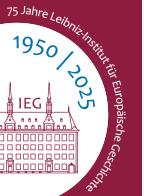Bees, God, and Other Workers in Early Modern Europe
How did humans’ and bees’ work intersect in early modern Europe? How did this interrelation inform evolving Christian understandings of good work and its rewards? These two questions drive a research project that will connect seemingly disparate histories of religion, the environment, and work.Bees had potently stimulated the Christian imagination ever since Late Antiquity. The intricate bodies and social organization of honeybees seemed to evince divine workmanship in the creation of the natural world. Through its tireless and selfless toil, the bee also offered humans moral lessons about diligence and thrift, as many churchmen argued. Yet the dynamics connecting bees to moral issues stretched far beyond the level of theological discourse: they often extended to beekeeping practices and conflicts on the ground. Many of the same pastors who engaged with the physico-theology of insects also pioneered and promoted new, supposedly more efficient beekeeping methods. The same eighteenth-century state administrators who condemned old moral economies also intervened in the countryside to discourage certain varieties of apiculture while fostering others. By illuminating these various ramifications and tensions, the project will reconceptualize the history of early modern work as a more-than-human story.


